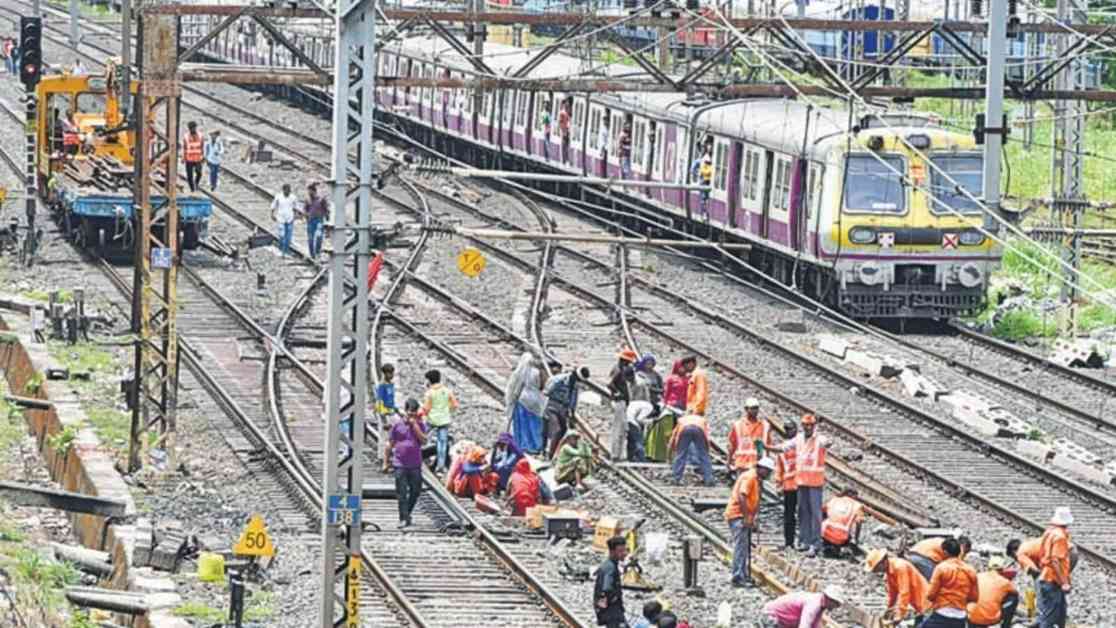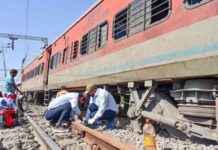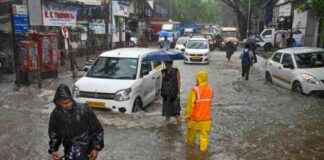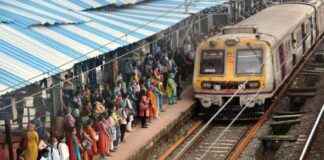Western Railway Mumbai: Trains Delayed Due to Track Work
Local trains on the Western Railway in Mumbai are currently experiencing delays of 15 to 20 minutes on average. This disruption in service is a direct result of a major 10-hour maintenance block that took place at Malad station. According to Western Railway officials, this maintenance work is the primary cause of the delays that commuters are facing today.
During the maintenance block at Malad station, tracks were cut and rejoined to create a new rail line. This process is essential for ensuring the safety and efficiency of the railway system. As a precautionary measure, trains are now operating at reduced speeds to maintain safety protocols. A spokesperson for the Western Railway reassured the public, stating, “There are no technical failures. We have issued caution orders, which is why trains are running at a slower pace.”
The caution order has led to trains operating at speeds of around 30 kilometers per hour near Malad. Despite the inconvenience caused by the delays, this measure is vital for ensuring the safety of passengers and railway staff. Over the weekend, the Western Railway authorities successfully commissioned a new track at Malad West. This track will be utilized for Virar-bound ‘Down’ slow trains, improving the overall efficiency of the railway system.
In an effort to enhance the railway infrastructure, Western Railway authorities have initiated the construction of a sixth line between Goregaon and Kandivali stations. This new line aims to segregate suburban and long-distance trains, reducing congestion and improving the overall functioning of the railway network. The recent 10-hour maintenance block at Malad station was a coordinated effort involving the Engineering, Signal & Telecommunication (S&T), and Electrical departments, demonstrating the commitment of Western Railway to enhancing the commuter experience.
Challenges and Solutions in Railway Maintenance
Maintaining a complex railway network such as the Western Railway in Mumbai comes with its own set of challenges. The recent maintenance work at Malad station highlighted the intricate processes involved in ensuring the smooth operation of trains. Cutting and rejoining tracks to create a new rail line requires precision and expertise to avoid any disruptions in service.
One of the main challenges faced by railway authorities during maintenance work is the need to balance safety with efficiency. Implementing caution orders and reducing train speeds may lead to delays, but these measures are essential for preventing accidents and ensuring the well-being of passengers. The recent commissioning of a new track at Malad West demonstrates the proactive approach of Western Railway in addressing the growing demands of the commuter population.
Future Plans for Western Railway
Looking ahead, Western Railway authorities have ambitious plans to further improve the railway infrastructure in Mumbai. The construction of a sixth line between Goregaon and Kandivali stations is just the beginning of a series of initiatives aimed at enhancing the commuter experience. By segregating suburban and long-distance trains, Western Railway aims to reduce overcrowding and optimize the flow of train services.
In addition to infrastructure projects, Western Railway is also focusing on enhancing passenger amenities and services. From introducing new train routes to upgrading station facilities, the railway authorities are committed to providing a seamless and comfortable journey for commuters. The recent maintenance work at Malad station is a testament to the dedication of Western Railway in ensuring the safety and efficiency of the railway network.
As Mumbai continues to grow and expand, the demand for reliable and efficient transportation services will only increase. Western Railway is poised to meet these challenges head-on, with a strategic vision for the future of railway transportation in the city. Through a combination of infrastructure upgrades, maintenance work, and passenger-centric initiatives, Western Railway is paving the way for a more sustainable and convenient commuting experience for all.




















